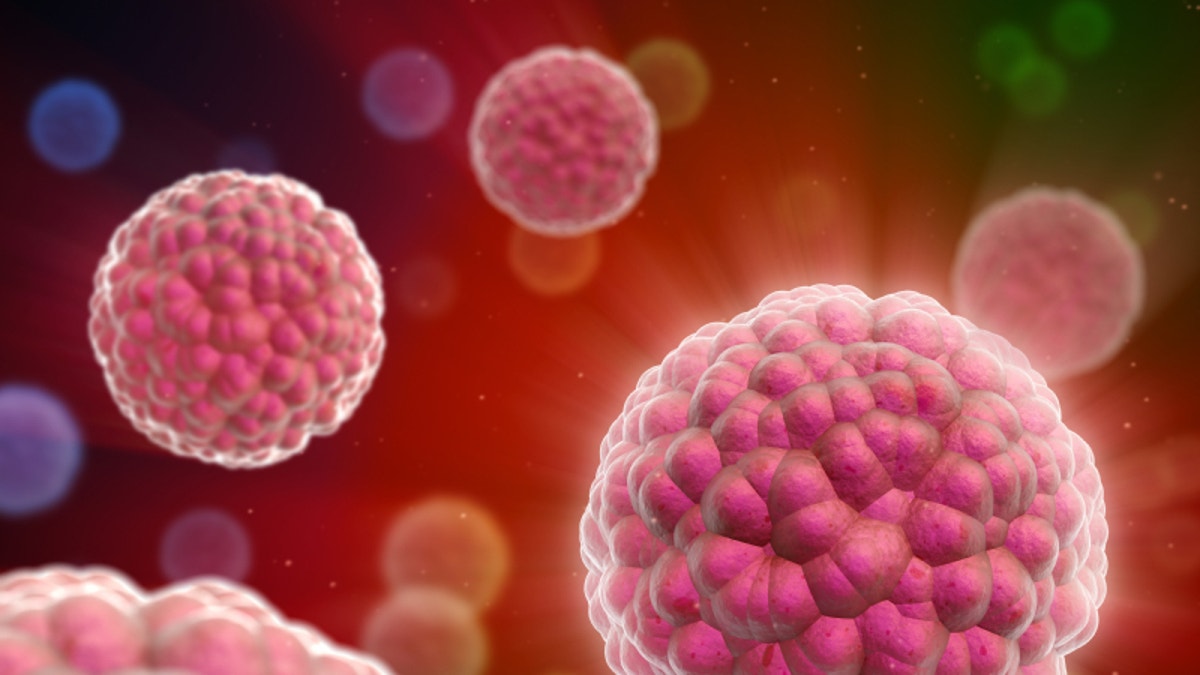
Cancer cells. (iStock)
Researchers at Dana Farber Cancer Institute in Boston have developed a new technique that can predict which specific drug will be most effective in treating various types of cancer tumors.
The technique is called Dynamic BH3 Profiling, or DBP, and in most cases provided results within 16 hours of testing. It was designed to detect the earliest signs that a cancer cell treated with a drug is beginning to “self-destruct” through apoptosis, a natural quality-control process that rids the body of unneeded or dangerously abnormal cells.
“This measurement can be made in less than a day. It turns out that those drugs that push cancer cells closer to the threshold of apoptosis even over this short time frame are the drugs that eventually kill the cancer cell best, both in the laboratory, and in mice and even humans,” Dr. Anthony Letai, senior study author and associate professor at Dana Farber Cancer Institute told FoxNews.com.
Cancer cells can survive by blocking molecular signals that trigger apoptosis. Most chemotherapy treatments work by stimulating pro-death signals in cancer cells to overcome the survival signals. The death process can take several days, but with the DBP test, scientists can identify which drug or drug combination has most effectively jump-started pro-death signaling.
Letai said DBP was 80 to 90 percent accurate in predicting the “winner” drug among 20 popular cancer treatment medications. Many different types of tumors were tested in the research, including leukemia, lymphoma, breast, melanoma, lung, prostate, colon and ovarian.
"We can take an early peek to see if the cancer cell is being pushed toward death. What makes this especially powerful, is that we're not restricted to using one drug at a time, it can test the effectiveness of combinations," Letai said.
The test was conducted on living tumor cells that were removed during surgery or a biopsy, or were frozen in a manner that leaves the cells viable.
Previous techniques in precision cancer medicine include testing tumors for DNA mutations that may make the cancer more sensitive to certain drugs. Research shows this type of testing isn’t always accurate, and most tumors have several properties in addition to mutations that determine drug responsiveness.
The authors of the new study say the DBP method is potentially more powerful because it tests specific types of cancer drugs directly on cells from the patient's tumor, and quickly determines which drugs can kill the cancer.
“I hope that these findings will convince the world of cancer treatment that rapid, functional measurements of how a patient's actual living tumor cells react to a variety of cancer therapies can be at least as valuable in determining the best way to treat each patient,” Letai said. “This is functional precision medicine, getting the right drugs to the right patient.”
The scientists said the technique could lead to more reliable and rapid tools for "personalizing" cancer treatments than are now available. Clinical testing is currently underway. The study findings are published in the journal Cell.








































